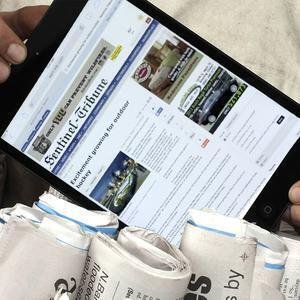In less than five months, tens of millions of Americans will cast their ballots in what could be a contentious presidential election. More than 30 states and the District of Columbia currently offer electronic voting for U.S. military and overseas voters. However, some states recently expanded electronic ballot returns for people with disabilities. Now, Nevada is believed to be the first state to give this option to native tribes on reservations and colonies.
While some see expansion of electronic voting as making electoral rights more equal, others warn of the security risk of expanding electronic voting.
The Federal Bureau of Investigation and other U.S. government agencies recommend keeping the practice limited, calling electronic ballot return a “high risk” that should be used only by voters who have no other means to cast their ballot.
Election officials also reportedly worry about what could happen to the ballot in-transit electronically. Some officials have suggested that the best method is for voters to print out electronic ballots and mail them in. Others pointed out that there are not federal guidelines for electronic voting, despite efforts to create guidelines in 2022.
Not all states are buying into the electronic voting process. In Minnesota, officials considered implementing the practice, but eventually decided against it.
“In light of recent security concerns, it’s on ice,” Minnesota Secretary of State Steve Simon said. “Some day, if those security considerations are addressed and if the concerns and objections of the federal agencies can be overcome, we would definitely consider it because as a matter of convenience, it would probably make a difference.”
Still, Nevada Democratic Secretary of State Cisco Aguilar maintained that his state’s system is safe and regulated. He told The Associated Press that he is confident in Nevada’s authentication and verification of eligible voters. Aguilar said that Nevada’s electronic voting has regular security reviews and updates to system.
Despite concerns, states with both Democratic and Republican governors allowed electronic ballot returns, with different stipulations. For instance, Alaska, California, Florida and Oklahoma limit the process to military and overseas voters and only allow return by fax. In Texas, astronauts are allowed to cast their votes through an online portal. In West Virginia, first responders on duty are also able to cast their votes electronically.
West Virginia Secretary of State Mac Warner is a supporter of electronic voting.
“Having been in the military, I’ve seen intelligence transmitted via the internet. We transmit nuclear codes via the internet,” Warner said. “If we can do that, we certainly can get a secure ballot and transmit across the internet.”




































